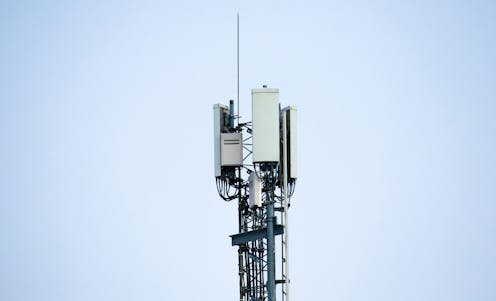
In recent days, Iranians experienced a near-complete internet blackout , with local service providers - including mobile services - repeatedly going offline. Iran's government has cited cyber security concerns for ordering the shutdown.
Authors
- Mohiuddin Ahmed
Senior Lecturer of Computing and Security, Edith Cowan University
- Paul Haskell-Dowland
Professor of Cyber Security Practice, Edith Cowan University
Shutting off the internet within an entire country is a serious action. It severely limits people's ability to freely communicate and to find reliable information during times of conflict.
In countries that have privatised mobile and internet providers, control is often exercised through legislation or through government directives - such as age restrictions on adult content. By contrast, Iran has spent years developing the capacity to directly control its telecommunications infrastructure .
So how can a country have broad control over internet access, and could this happen anywhere in the world?
How does 'blocking the internet' work?
The "internet" is a broad term. It covers many types of applications, services and, of course, the websites we're familiar with.
There's a range of ways to control access to internet services , but broadly speaking, there are two "simple" methods a nation could use to block citizens' internet access.
Hardware
A nation may opt to physically disconnect the incoming internet connectivity at the point of entry to the country (imagine pulling the plug on a telephone exchange).
This allows for easy recovery of service when the government is ready, but the impact will be far-reaching. Nobody in the country, including the government itself, will be able to connect to the internet - unless the government has its own additional, covert connectivity to the rest of the world.
Software and configuration
This is where it gets more technical. Every internet-connected endpoint - laptop, computer, mobile phone - has an IP (internet protocol) address. They're strings of numbers; for example, 77.237.87.95 is an address assigned to one of the internet service providers in Iran.
IP addresses identify the device on the public internet. However, since strings of numbers are not easy to remember, humans use domain names to connect to services - theconversation.com is an example of a domain name.
That connection between the IP address and the domain is controlled by the domain name system or DNS. It's possible for a government to control access to key internet services by modifying the DNS - this manipulates the connection between domain names and their underlying numeric addresses.
An additional way to control the internet involves manipulating the traffic flow. IP addresses allow devices to send and receive data across networks controlled by internet service providers. In turn, they rely on the border gateway protocol (BGP) - think of it like a series of traffic signs which direct internet traffic flow, allowing data to move around the world.
Governments could force local internet service providers to remove their BGP routes from the internet. As a result, the devices they service wouldn't be able to connect to the internet. In the same manner, the rest of the world would no longer be able to "see" into the country.
How common is this?
In dozens of countries around the world , the internet is either routinely controlled or has been shut down in response to major incidents.
A recent example is a wide-scale internet blackout in Bangladesh in July 2024 during student-led protests against government job quotas.
In 2023, Senegal limited internet access to handle violent protests that erupted over the sentencing of a political leader. In 2020, India imposed a lengthy internet blackout on the disputed Himalayan region of Kashmir . In 2011, the Egyptian government withdrew BGP routes to address civil unrest.
These events clearly show that if a government anywhere in the world wants to turn off the internet, it really can. The democratic state of the country is the most significant influence on the willingness to undertake such action - not the technical capability.
However, in today's world, being disconnected from the internet will heavily impact people's lives, jobs and the economy. It's not an action to be taken lightly.
How can people evade internet controls?
Virtual private networks or VPNs have long been used to hide communications in countries with strict internet controls, and continue to be an effective internet access method for many people. (However, there are indications Iran has clamped down on VPN use in recent times .)
However, VPNs won't help when the internet is physically disconnected. Depending on configuration, if BGP routes are blocked, this may also prevent any VPN traffic from reaching the target.
This is where independent satellite internet services open up the most reliable alternative. Satellite internet is great for remote and rural areas where traditional internet service providers have yet to establish their cabling infrastructure - or can't do so.
Even if traditional wired or wireless internet connections are unavailable, services such as Starlink, Viasat, Hughesnet and others can provide internet access through satellites orbiting Earth.
To use satellite internet, users rely on antenna kits supplied by providers. In Iran, Elon Musk's Starlink was activated during the blackout , and independent reports suggest there are thousands of Starlink receivers secretly operating in the country.
![]()
The authors do not work for, consult, own shares in or receive funding from any company or organisation that would benefit from this article, and have disclosed no relevant affiliations beyond their academic appointment.






